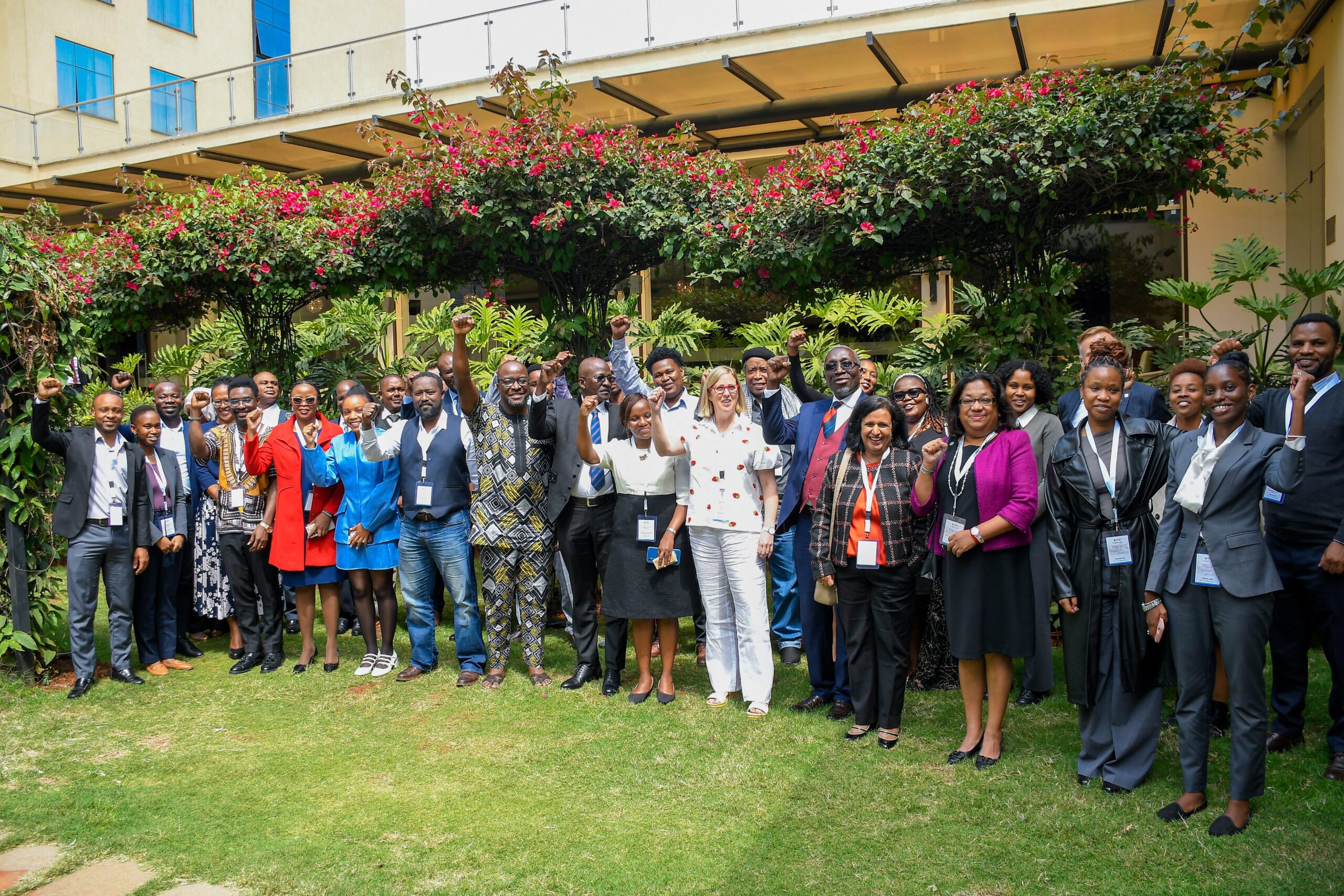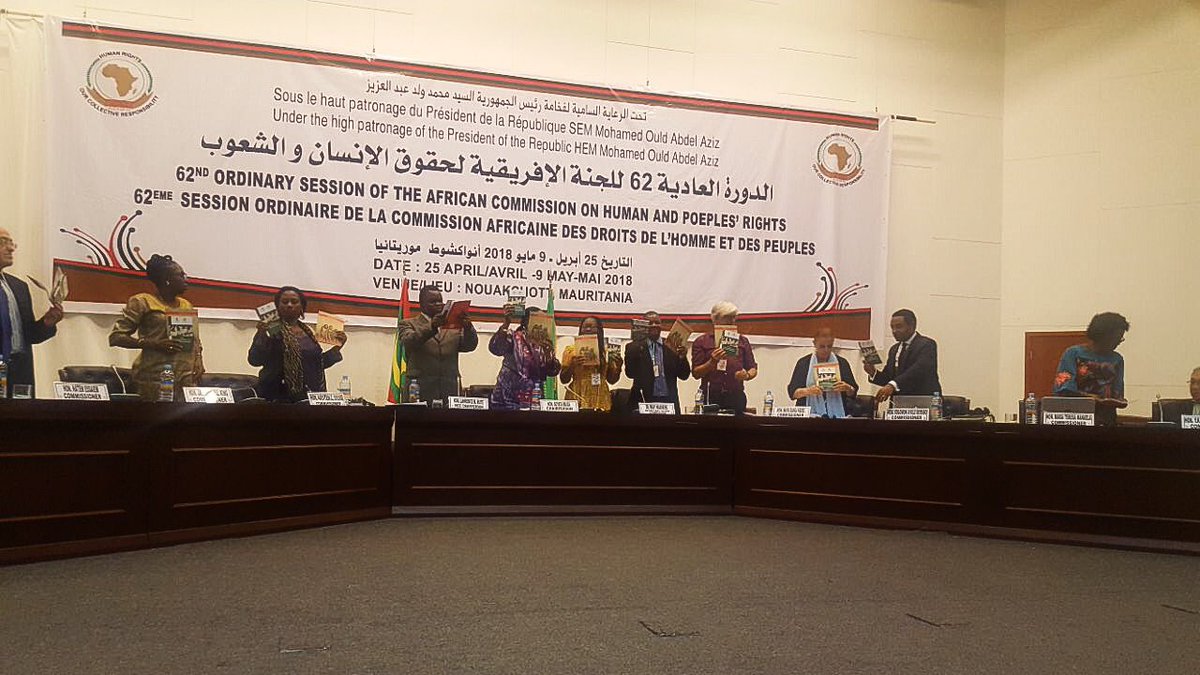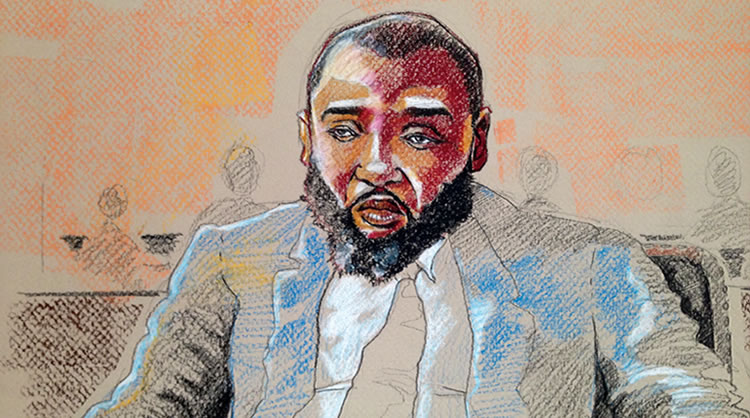Honourable Chair, Honourable Commissioners, State delegates, representatives of National Human Rights Institutions, members of civil society organisations and distinguished participants. The Kenyan Section of the International Commission of Jurists (ICJ Kenya) welcomes the opportunity to present this Statement on the situation of human rights in Kenya.
The ICJ Kenya appreciates the significant institutional and normative progress made to date in promoting and protecting human and peoples’ rights, and especially women’s rights. However, we regret that our country still faces a multitude of rule of law, governance and human rights challenges. These include; attacks on the judiciary by the Executive and Legislature; poor governance, rampant corruption, lack of transparency and accountability; terrorism; money laundering; violations of freedoms of expression; violation of rights of women, and of marginalised and vulnerable groups including children, persons with disabilities and older persons; intimidation and attacks on human rights defenders, especially women human rights defenders and journalists; shrinking space for civil society at national and continental levels; restrictions on access to information, and assembly and association; unabated impunity for egregious violations; non-inclusive growth, increased joblessness and exclusion and alienation of youth; and food insecurity.
The general human rights situation in Kenya remains worrying, but in particular, ICJ Kenya would like to bring to your attention and highlight the following key concerns regarding the state of human rights in Kenya.
- ICJ Kenya is alarmed at the persistent and deliberate attacks against individual judges and the institution of the judiciary, and disobedience of court orders. ICJ Kenya notes that there has been threats and intimidation of judges and judicial officers who preside, hear and determine election petitions. These attacks were fuelled by the annulment of the 2017 presidential elections by the Supreme Court. This in turn led to the public personalized attacks against the judges of the Supreme Court through mainstream media as well as negative profiling of judges, judicial officers and staff on social media platforms. ICJ Kenya notes that these attacks against the judiciary undermine public perception, confidence and democratization which are major factors that the de facto and de jure independence of the judiciary rely upon. It is important for the country to uphold an independent and accountable judiciary, provide it with sufficient funds and supporting structures and processes that enhances rights holders to articulate and affirm their rights in an affordable and efficient manner.
We have observed with great concern the worrisome trend of disobedience of court orders by the Executive. It is on record that the Executive and Legislature have consistently disregarded court orders especially when decisions have not been rendered in their favour. The recent events where a Kenyan citizen, Dr. Miguna Miguna, was deported from Kenya illegally and without a justifiable explanationonly serves to bring to fore the orientation of the Executive and the Legislature towards the rule of law
- ICJ Kenya is also alarmed at the attacks against the media and civil society organizations. There have been vicious attacks on civil society in social media led by government supporters and operatives. There has also been attempted and threatened legislative caps on funding for NGOs, arbitrary arrests of human rights defenders, the jailing of bloggers who criticise the government officials, and unlawful limitations on media freedom. More recently, the State, through Communication Authority of Kenya and the Kenya Police Service, shutdown several Television Stations and switched off the radio spectrum of licensed media houses. The shutdown was as a consequence of the stations intention to air the swearing of Hon. Raila Odinga and Hon. Kalonzo Musyoka as the people’s President and Deputy President respectively at Uhuru Park, Nairobi. The act of shutting down the stations contravened Chapter four of the Bill of Rights in the Constitution of Kenyan. Article 33 provides for the freedom of expression and provides that every person has the right to freedom of expression, which includes, freedom to seek, receive or impart information or ideas.
- ICJ Kenya is also deeply concerned about the growing trend of police brutality, torture and extrajudicial killing and regime policing. Kenya has a long history of extrajudicial killings. State machinery (the police) has increasingly been used to intimidate and harass citizens and to silence dissident voices, resulting into grave human rights violations. In 2008, Kenyan security forces were accused of extrajudicial killings during operations in the Mandera triangle region in the North and in Mount Elgon in the West, and in the same year, police involvement in post-election violence was widely documented. Recently, the Mombasa-based NGO, Muslims for Human Rights, has accused the Anti-Terrorism Police Unit (ATPU) of a series of disappearances and extrajudicial killings of Muslims along the Kenyan coast and in Northern Kenya. Killings by the police are widespread. Some killings are opportunistic, reckless or personal. Many others are carefully planned. It is impossible to estimate reliably how many killings occurred during the 2017 election period, because the police do not keep a centralized database. But police shootings are reported nearly every day of the week by the press and the total number is certainly unacceptably high.
- ICJ Kenya notes the deliberate and delayed implementation of key legislation underpinning human rights in the Kenya. The promulgation of the constitution of Kenya 2010 ushered in a new order by providing a robust Bill of Rights which provides fundamental rights and freedoms and ensures equality and non-discrimination. ICJ Kenya has witnessed the deliberate delay of the implementation of pertinent provisions and legislation that provide means for realization of human rights, access to justice and democracy. These include provisions on the 2/3rd gender rule and legislation, including but not limited to, the Access to Information Act 2016, the Public Benefits Act, 2013, Legal Aid Act 2016, the National Coroners Service Act, the Prevention of Torture Act 2017, and the Small Claims Court Act, 2016.
- ICJ Kenya acknowledges the centrality of free and fair elections in securing good governance of the African people. We are concerned about the electoral violence and malpractices across the region and in particular, Kenya. Tribal politics and elite interests continue to drive the election agenda in the country. The elections in Kenya fail to meet the general principles stipulated under Article 81(e) of the Constitution of Kenya of a free and fair election and are not free from violence, intimidation, improper influence or corruption. Furthermore, in 2017, there were attacks against the Independent Election and Boundaries Commission which was meant to oversee the fresh election in an impartial, neutral, efficient, accurate and accountable manner. To the contrary, the fresh election was not conducted by an independent body, free from influence from the Legislature and the Executive. Recent, occurrences have revealed the situation within the Commission.
- ICJ Kenya is concerned that the Kenyan State is yet to sign the Second Optional Protocol to the International Covenant on Civil and Political Rights which abolishes the death penalty. In 2007, the Kenya National Commission on Human Rights, through a position paper, recommended for the abolition of the death penalty as a step toward the protection of human rights in Kenya. Despite these recommendations by the Commission the Government has not abolished the death penalty. This nevertheless, notable efforts can be seen. In October 2016, President Uhuru Kenyatta commuted 2,655 men and 92 women to serve life sentences. Despite being a signatory to the African Charter on Human and Peoples’ Rights. Further to that, ICJ Kenya acknowledges the milestones which have been achieved towards the abolition of the death penalty in Kenya. The Supreme Court of Kenya, in the case of Francis Karioko Muruatetu & Wilson Thirimbu Mwangi v Republic [2017] eKLR, removed the mandarory provisions of the death penalty afrter ruling that any court in Kenya dealing with a capital offence should be allowed to use its judicial discretion to deliver judgement and issue the death penalty.
- ICJ Kenya appreciates that although the extractives sector has the potential to propel economic and social development in Kenya, the legal, policy and administrative frameworks remain nascent and information to the public is not readily available. ICJ Kenya is cognisant of the delayed enactment and implementation of pertinent legislation including the Access to Information Law in Kenya which provides the basis to catalyze discourse on extractive governance in the region. Other pending laws and policies that contain progressive provisions on transparency and accountability include: the Natural Resource (Benefit Sharing) Bill, 2014, the Local Content Bill, 2016, the Petroleum (Exploitation, Development and Production) Bill, 2015, and the National Sovereign Wealth Fund Bill, 2014; the implementation of newly adopted policies and laws such as the Mining Act that
- ICJ Kenya notes that laws that criminalize petty offences in Kenya are broad and vague to the extent that they fail to enumerate the elements of criminal conduct; and continued enforcement of these laws result in unparalleled human rights violations suffered by alleged petty offenders at the point of arrest, detention before trial, trial and post-trial periods. Detention facilities in Kenya are also characterised by congestion, poor sanitation and hygiene and failure to segregate detainees beyond their sexes. There is also general failure to facilitate functional access to justice for alleged petty offenders. Further, these offenses are crafted in such a manner that they have the net effect of targeting the poor and vulnerable since they criminalise conduct resulting from the social economic challenges faced by particular groups of people in the society. These include street venders/hawkers, street children/families, sex workers, matatu touts, motorcycle riders among others.
- ICJ Kenya recognizes that despite notable achievements, and whereas global and regional instruments as well as domestic laws and policies are important for the advancement of women, their enforcement and implementation has been fraught with challenges. There are still obstacles which hinder full realization of women’s rights on the continent, including access to decision making platforms in appointive and elective positions. Eighteen African Union member States are yet to ratify the Maputo Protocol; the continued violation of women’s’ rights; the absence of sufficient legal protection in national legislation; the failure to implement the rights enshrined in the national legislation and regional and international instruments; and low levels of awareness on the provisions of the such instruments. ICJ Kenya recognizes the unique role that judges and magistrates play as duty bearers, leaders, interpreters of national, regional and international laws, as well as champions of human rights and the rule of law. At the same time, it notes the special role that women play within the judiciaries, in similar or comparable capacities to their male counterparts, and the need to strengthen their contribution to the administration of justice.
- ICJ Kenya notes with great concern the rampant and systemic non-compliance with State reporting obligations and compliance with recommendations and decisions of the African Commission and the African Court.
We call on the African Commission to:
- Urge the Government of Kenya to uphold the Rule of Law and the Spirit of Separation of Powers by allowing the Judiciary to conduct its mandate in an independent and accountable manner.
- Urge the Government of Kenya to take measures to ensure that the Civil Society Organizations, media and journalists are able to carry out their work without fear, intimidation, threats and harassment.
- Urge the Government of Kenya to take measures to curb police brutality, torture, extrajudicial killing and regime policing as well as underscore personal responsibility of any security agent involved in these human rights violations.
- Urge the Government of Kenya to underscore the implementation of pertinent national legislation and international instruments that protect human rights including women’s rights, the Rule of Law and democracy in the country.
- Urge the Government of Kenya to sign the Second Optional Protocol to the International Covenant on Civil and Political Rights which abolishes the death penalty.
- Urge the government of Kenya to decriminalise and/or reclassify laws that criminalize petty offences in Kenya.
Kenyan Section of the International Commission of Jurists (Observers status number 118)
SIGNED
Samwel Mohochi
EXECUTIVE DIRECTOR










